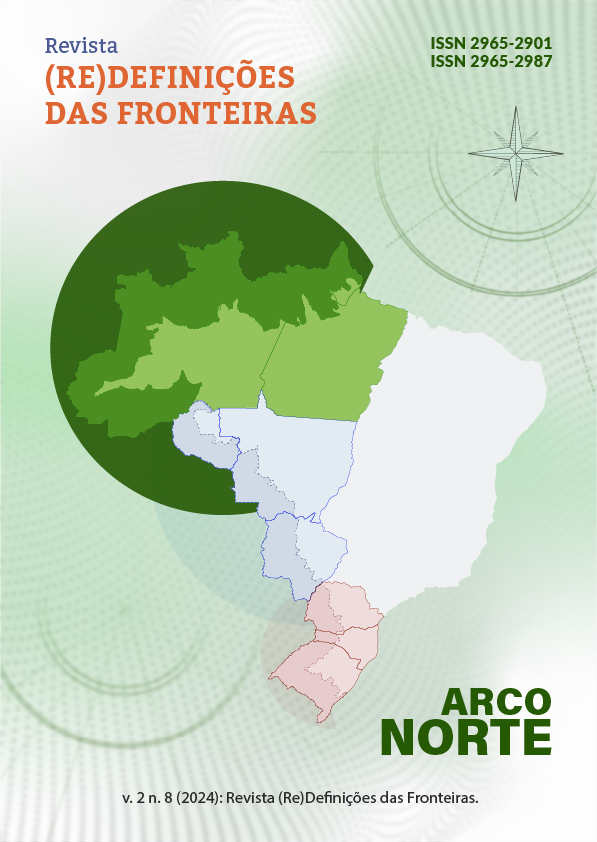A NOVA POLÍCIA DA UNIÃO E A LEI 12.885/2013
RELAÇÃO ENTRE ADICIONAL DE FRONTEIRA E DIFICULDADES DE PROVIMENTO
DOI:
https://doi.org/10.59731/rdf.v2i8.115Keywords:
Union Police, Federal Criminal Police, Rondônia, Difficult provision, Additional borderAbstract
It deals with the present investigation research on the indemnity of the border surcharge (Law 12.855/2013) in the Federal Public Administration, and its scope, limits, actors, in particular the new federal police of the Union, the Federal Criminal Police. On 12/04/2019, the National Congress created, in a solemn session, the Constitutional Amendment (EC) 104, which creates the Criminal Police, the body responsible for the security of the federal, state and Federal District prison system. In this sense, we will emphasize research in the federal sphere, where Federal Criminal Police officers are active today, exercising their public functions in five Brazilian states, among them the state of Rondônia, a border state in the northern region of the country. Faced with the new situation, the federal government constitutionally recognized the insertion of new police servants in the list of article 144 of the Magna Carta. Thus, as in the other police forces of the Union, such as the Federal Police and the Federal Highway Police, one can see the difficulty of maintaining the number of Federal Criminal Police in Federal Penitentiaries in so-called difficult-to-pay capacities, as is the case in Porto Velho (RO), region with a low human development index, compared to the other locations of the National Secretariat for Penal Policies. In this bias, it is necessary to introduce public policies that can financially subsidize the server crowded in these regions, in order to satisfy basic needs, based on better economic conditions, and thus establish residence and satisfy their interests, both professional and personal, avoiding the constant exodus of servers, in addition to frequent sick leave, and low productive engagement. Hence the need for adequate wage investment for strategic regions for public security. This distortion has already been the subject of administrative management in the other police forces of the Union, with the increase in the border surcharge, introduced by Law nº 12.885/2013. observing considerable improvement in the development of activities and in the provision of the public service offered. In this way, the present study will be based on a descriptive exploratory research methodology, with a biographical, documental approach, defining the concepts about the application of the norm, its effects on factual reality, its form of application in the public sphere and the infraconstitutional legislation that impacts in the activity of the Federal Criminal Police and its consequences.

Downloads
Published
How to Cite
Issue
Section
License
Copyright (c) 2024 Revista (RE)DEFINIÇÕES DAS FRONTEIRAS

This work is licensed under a Creative Commons Attribution-NonCommercial-NoDerivatives 4.0 International License.
<a rel="license" href="http://creativecommons.org/licenses/by-nc-sa/4.0/"><img alt="Licença Creative Commons" style="border-width:0" src="https://i.creativecommons.org/l/by-nc-sa/4.0/88x31.png" /></a><br />Este obra está licenciado com uma Licença <a rel="license" href="http://creativecommons.org/licenses/by-nc-sa/4.0/">Creative Commons Atribuição-NãoComercial-CompartilhaIgual 4.0 Internacional</a>.




